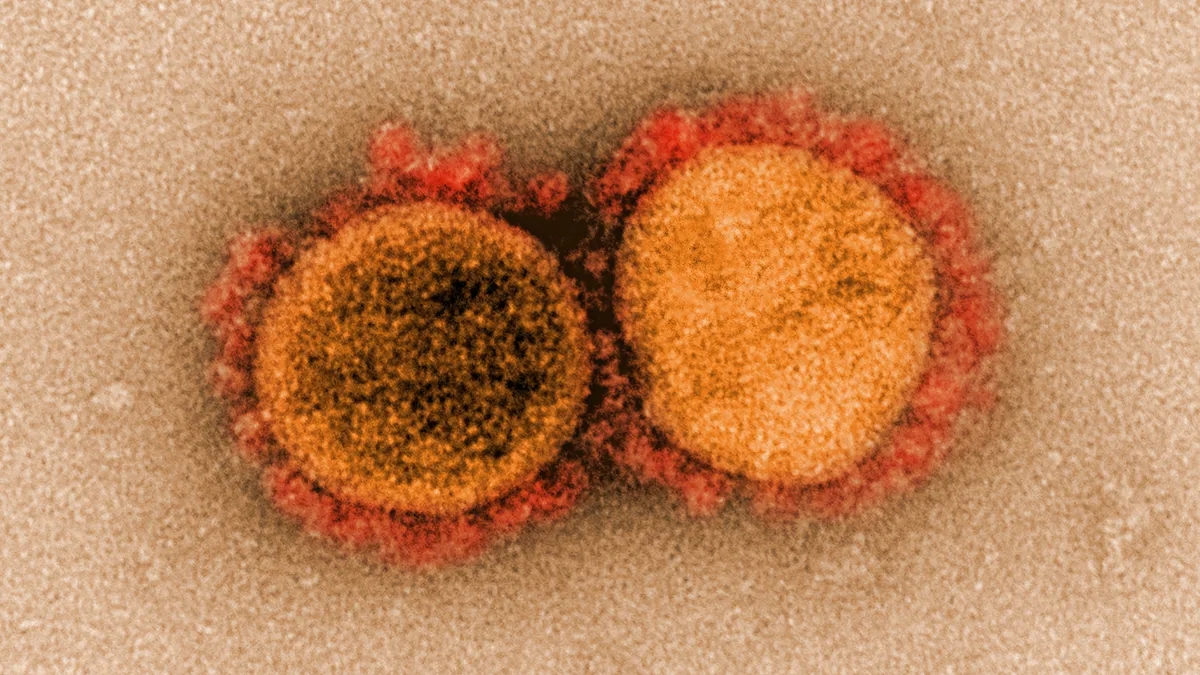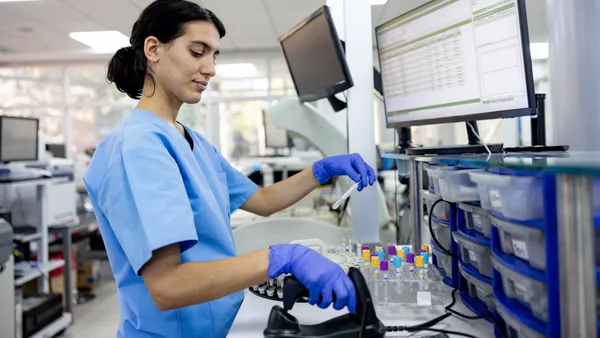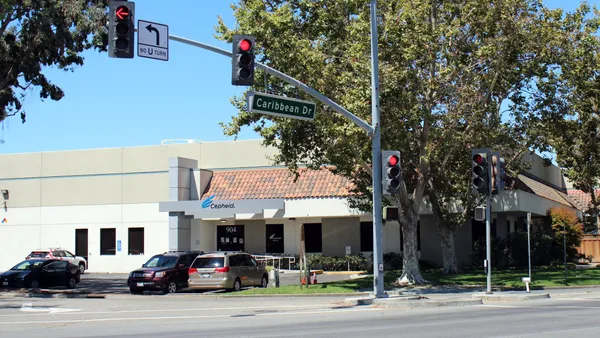Dive Brief:
-
The U.S. government has awarded Cue Health $481 million to scale up manufacturing and provide 6 million rapid, point-of-care COVID-19 tests.
-
San Diego-based Cue, which disclosed the award Tuesday, won emergency use authorization in June for a molecular test designed to deliver results in 20 minutes. The government is sourcing 30,000 of the automated instruments used to run the cartridge-based test.
- Cue said the money will help it onshore its supply chain and quickly increase its production capacity. Import records show Cue currently relies on China for some products.
Dive Insight:
The $481 million investment dwarfs the $13 million Cue secured from BARDA early in the pandemic to support the application of its testing technology to COVID-19. The system consists of a battery-powered cartridge reader that wirelessly pairs to smartphones and other mobile devices via Bluetooth. Users insert a test cartridge into the reader, allow it to heat up and then insert a nasal swab carrying a specimen into the cartridge. The system starts analyzing the sample automatically and sends the result to the mobile app.
The system is faster than most molecular tests, with Cue claiming 20 to 25 minute processing times, and performed almost as well as standard PCR in the studies that supported EUA. In a prospective clinical study, Cue’s system agreed with a standard test on 100% of positive samples and 92% of negative cases, although that evaluation only involved 44 individuals at two sites.
HHS, which received preliminary results from a Mayo Clinic study of the system, has seen enough data to persuade it to work with the Department of Defense to give Cue the money it needs to scale up its operation. The funding comes months after Cue raised $100 million from private investors.
Cue will use the government funding to scale up production capacity to 100,000 COVID-19 test kits a day at its San Diego facilities by March. If Cue hits that target, it will add significantly to capacity for rapid molecular testing.
Other test makers have taken on a similar challenge. By comparison, Abbott was making 50,000 ID Now tests a day when that rapid test came to market at the end of March. Back then, Abbott gave itself a few months to scale up daily production to around 66,000 tests, which deliver results in 13 minutes but are subject to accuracy concerns.
Abbott discussed ID Now expansion on a second quarter results conference call in July without sharing details of its current output, stating only that it was investing to add capacity and “knew that 50,000 tests a day wouldn’t necessarily be enough.” Over a nine day period in August, Abbott’s total U.S. shipments of ID Now went from 6.5 million to 7 million, suggesting it was making around 55,000 tests a day for the domestic market at that time.
Cue will scale up its capacity by investing in its U.S. operation and supply chain. By onshoring its supply chain, Cue could insulate its operation from disruption to global trade caused by COVID-19 or future pandemics.











